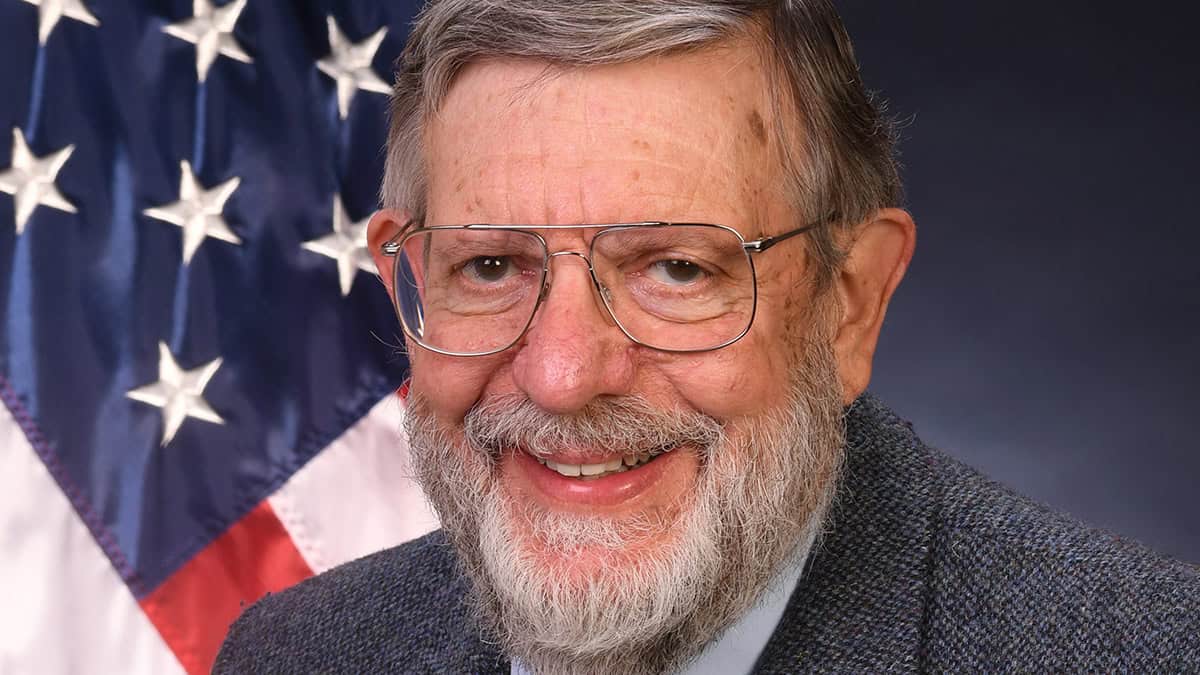Science
William Phillips Explores the Fascinating World of Quantum Physics

Quantum physics continues to captivate researchers, and among its prominent figures is William Phillips. A pioneer in the field, Phillips has made significant contributions that have transformed our understanding of atomic behavior and quantum mechanics. After earning his degree from Juniata College in Pennsylvania in 1970, he completed his PhD at the Massachusetts Institute of Technology (MIT) under the guidance of renowned physicist Dan Kleppner, where he focused on measuring the magnetic moment of the proton in water.
Joining the National Bureau of Standards in 1978—now known as the National Institute of Standards and Technology (NIST)—Phillips has been instrumental in advancing the field of quantum science. He shared the 1997 Nobel Prize for Physics with Steven Chu and Claude Cohen-Tannoudji for their groundbreaking work on laser cooling. This technique employs precisely tuned laser beams to slow atoms, bringing them to temperatures just above absolute zero, which has had profound implications for the development of more accurate atomic clocks and the creation of Bose-Einstein condensates.
In a recent conversation, Phillips reflected on his journey and the intriguing aspects of quantum physics. He recounted how his interest in the field began during his undergraduate studies when he participated in research on electron spin resonance. This early experience ignited his passion for exploring the counterintuitive nature of quantum mechanics, which he describes as “deliciously weird.”
Understanding Quantum Mechanics
Phillips acknowledges that concepts such as entanglement can be challenging to grasp. When two particles are entangled, measuring one particle affects the state of the other instantaneously, regardless of the distance separating them. This phenomenon defies everyday experiences and challenges our understanding of local realism.
While entanglement may seem perplexing, Phillips emphasizes the importance of superposition. This principle has enabled the creation of atomic clocks with unprecedented precision. When Phillips first joined NIST, the best clock achieved accuracy of one part in 1013. Today, advancements in laser cooling and trapping have led to clocks that can resolve differences of less than one millimeter.
Phillips and his colleagues at NIST are currently pushing the boundaries of quantum research. One notable project involves developing atomic clocks from atoms trapped in optical lattices, which currently achieve accuracy better than one part in 1018. These innovations may pave the way for redefining the second in terms of time measurement.
The Future of Quantum Computing
The realm of quantum information also holds great promise. Unlike traditional bits, which represent either a 0 or a 1, qubits can exist in a superposition of states, allowing for more complex calculations. For instance, Peter Shor‘s 1994 algorithm demonstrated that quantum computers could factor large numbers much more efficiently than classical computers, a breakthrough with significant implications for cryptography and data security.
Phillips warns, however, that while quantum computers are advancing, practical applications remain a future goal. He speculates that the first substantial breakthroughs may involve problems in quantum chemistry, potentially revolutionizing our understanding of molecular behavior. He has even made a friendly wager with colleague Carl Williams on whether a quantum computer capable of factoring numbers beyond classical capabilities will emerge by 2045.
As quantum technology progresses, researchers are also exploring hybrid quantum computing systems that combine the strengths of various platforms, such as superconducting circuits and trapped ions. This approach may lead to more effective and efficient quantum computers, although the field is still in its infancy.
Phillips expressed enthusiasm for tackling complex problems, such as quantum magnetism, which require significant computational power. Current quantum computers are not yet reliable enough for such tasks, but ongoing research into error correction methods aims to enhance their reliability.
Serendipity has played a significant role in Phillips’ career, leading to unexpected discoveries like sub-Doppler laser cooling and optical lattices. He emphasizes the importance of curiosity-driven research, suggesting that many scientific breakthroughs come from exploring the unknown rather than strictly pursuing predetermined goals.
Reflecting on his career, Phillips highlighted the impact of quantum mechanics on modern technology. He notes that the principles of wave-particle duality have led to innovations that shape our daily lives, including the mobile phones we use today.
As we celebrate the 2025 International Year of Quantum Science and Technology, the contributions of researchers like William Phillips remind us of the profound implications of quantum physics. His work not only advances scientific knowledge but also holds the potential to transform how we understand and interact with the world around us.
-

 Health3 months ago
Health3 months agoNeurologist Warns Excessive Use of Supplements Can Harm Brain
-

 Health3 months ago
Health3 months agoFiona Phillips’ Husband Shares Heartfelt Update on Her Alzheimer’s Journey
-

 Science2 months ago
Science2 months agoBrian Cox Addresses Claims of Alien Probe in 3I/ATLAS Discovery
-

 Science2 months ago
Science2 months agoNASA Investigates Unusual Comet 3I/ATLAS; New Findings Emerge
-

 Science1 month ago
Science1 month agoScientists Examine 3I/ATLAS: Alien Artifact or Cosmic Oddity?
-

 Entertainment5 months ago
Entertainment5 months agoKerry Katona Discusses Future Baby Plans and Brian McFadden’s Wedding
-

 Science1 month ago
Science1 month agoNASA Investigates Speedy Object 3I/ATLAS, Sparking Speculation
-

 Entertainment2 months ago
Entertainment2 months agoLewis Cope Addresses Accusations of Dance Training Advantage
-

 Entertainment4 months ago
Entertainment4 months agoEmmerdale Faces Tension as Dylan and April’s Lives Hang in the Balance
-

 World3 months ago
World3 months agoCole Palmer’s Cryptic Message to Kobbie Mainoo Following Loan Talks
-

 Science1 month ago
Science1 month agoNASA Scientists Explore Origins of 3I/ATLAS, a Fast-Moving Visitor
-

 Entertainment4 months ago
Entertainment4 months agoMajor Cast Changes at Coronation Street: Exits and Returns in 2025









